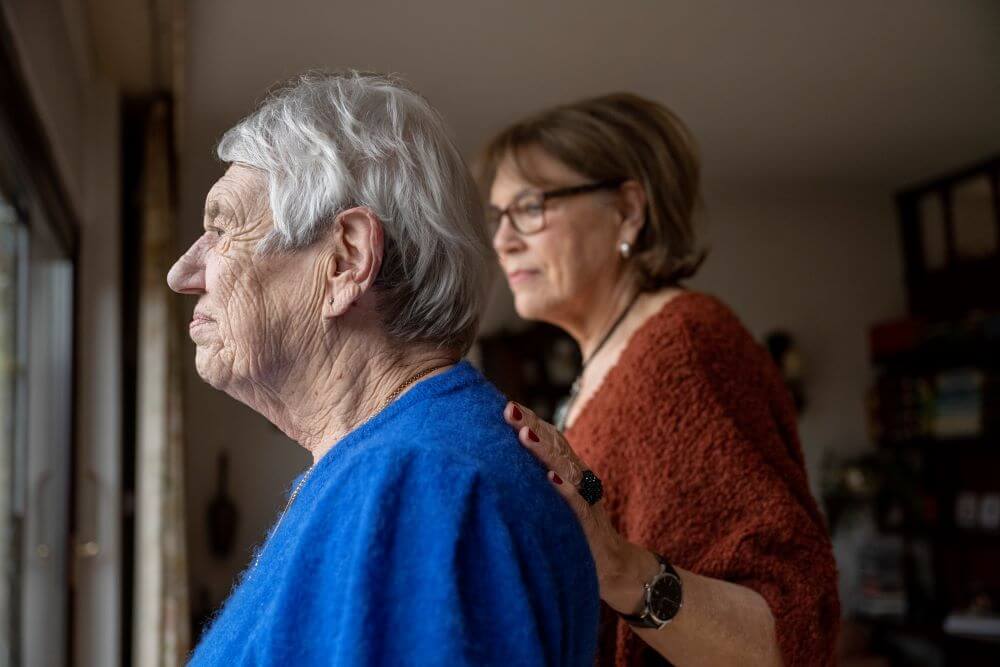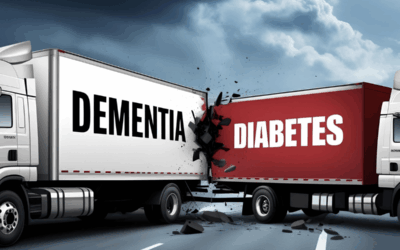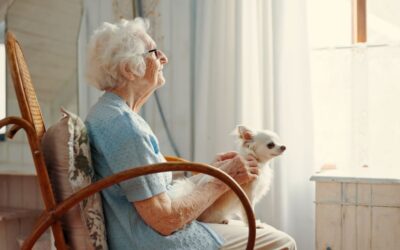Understanding Dementia: ADLs and IADLs
Caring for someone with dementia can be a challenging journey, but understanding what they need help with can make things a little easier. Let’s talk about two important terms: ADLs and IADLs, and how these change as dementia progresses.

What Are ADLs?
ADLs stand for Activities of Daily Living. These are the basic tasks we all need to do each day to take care of ourselves. Think of them as the “must-do” activities. Here are the main ADLs:
- Bathing: This includes taking a shower or bath and washing up.
- Dressing: Putting on clothes and choosing what to wear.
- Eating: Feeding oneself, whether it’s using a fork or spoon.
- Toileting: Getting to and from the toilet, and cleaning up after.
- Transferring: Moving from one place to another, like getting in and out of bed or a chair.
- Continence: Being able to control bladder and bowel movements.

What Are IADLs?
IADLs stand for Instrumental Activities of Daily Living. These tasks are a bit more complex than ADLs and involve managing day-to-day life. Here are the main IADLs:
- Managing Finances: Paying bills, handling money, and budgeting.
- Transportation: Driving or using public transport to get around.
- Shopping: Buying groceries, clothes, and other necessities.
- Preparing Meals: Planning, cooking, and serving food.
- Housekeeping: Keeping the home clean and tidy, doing laundry.
- Managing Medications: Taking the right medicines at the right times.
- Communication: Using the phone, mail, or email to stay in touch with others.
Changes Through Different Dementia Stages

Early Stage Dementia:
- ADLs:
- Might need occasional reminders for tasks like bathing or dressing.
- Generally able to eat and use the toilet independently.
- IADLs:
- Begin to struggle with managing finances and remembering to pay bills.
- May get lost while driving or using public transport.
- Need help planning and preparing meals.
- Housekeeping might become less frequent or thorough.
- Medication management becomes challenging; may forget doses.
- Communication can become confusing; they might repeat themselves or lose track of conversations.

Middle Stage Dementia:
- ADLs:
- Requires regular assistance with bathing and dressing.
- May need help with eating, like cutting food or reminders to eat.
- Increased need for help with toileting and maintaining continence.
- Needs help with transferring, like getting in and out of bed or chairs.
- IADLs:
- Unable to manage finances or pay bills.
- No longer able to drive; needs assistance with transportation.
- Needs help with all aspects of shopping and meal preparation.
- Housekeeping tasks are too complex to manage.
- Requires assistance with managing medications.
- Communication becomes more difficult; might struggle to find words or understand others.

Late Stage Dementia:
- ADLs:
- Fully dependent on others for bathing, dressing, and toileting.
- Needs assistance with all aspects of eating, including being fed.
- May be incontinent and require full assistance with continence care.
- Requires full assistance for transferring and mobility.
- IADLs:
- Completely dependent on caregivers for all instrumental activities.
- Unable to engage in any shopping, cooking, or housekeeping tasks.
- Completely reliant on others to manage medications and healthcare needs.
- Communication is very limited; may use non-verbal methods like gestures or facial expressions.

Importance of Tracking Dementia-Related Changes
Tracking changes in ADLs (Activities of Daily Living) and IADLs (Instrumental Activities of Daily Living) is crucial for several reasons:
Early Detection
Spotting changes early can help you address new challenges as they arise.
- Example (IADL): You notice that your loved one, who lives independently, is having trouble paying bills on time. This might be a sign that managing finances is becoming difficult.
- Intervention: Set up automatic bill payments and arrange for a family member to check in regularly to review finances together.
- Example (ADL): Your family member, who lives with you, starts to forget to take showers regularly.
- Intervention: Create a daily routine with reminders for showering and assist them if needed, ensuring they feel comfortable and dignified.

Tailored Care
Understanding the specific needs of your loved one allows you to provide better, more personalized care.
- Example (IADL): An independent loved one starts having trouble preparing meals, leaving the stove on, or forgetting ingredients.
- Intervention: Arrange for meal delivery services or prepare meals together in advance to ensure they have nutritious food without the risks.
- Example (ADL): A family member at home is struggling with dressing, putting clothes on backward, or mismatching.
- Intervention: Lay out clothes in the order they should be put on and choose items that are easy to wear, like clothes with Velcro instead of buttons.

Medical Decisions
Tracking changes provides valuable information for healthcare providers, helping them make more informed decisions about treatments and interventions.
- Example (IADL): Your loved one, living independently, begins missing doctor appointments because they forget or get confused about the dates.
- Intervention: Use a calendar app that sends reminders to both your loved one and a family member who can follow up and ensure appointments are kept.
- Example (ADL): Your family member at home starts experiencing more frequent incontinence episodes.
- Intervention: Discuss these changes with their healthcare provider to explore options like incontinence products, medications, or a referral to a specialist.

Safety
Recognizing when more help is needed can prevent accidents and ensure a safer environment for your loved one.
- Example (IADL): An independent loved one shows signs of difficulty with transportation, like getting lost or feeling anxious about driving.
- Intervention: Arrange for transportation services or family members to drive them to appointments and social activities.
- Example (ADL): Your family member at home is struggling with transferring safely from bed to chair, increasing the risk of falls.
- Intervention: Install grab bars and use assistive devices like transfer belts, and consider consulting a physical therapist for safe transfer techniques.

Planning Ahead
Knowing what to expect as dementia progresses helps you prepare for future stages, ensuring that you’re ready to provide the necessary support.
- Example (IADL): Your loved one living independently begins to neglect housekeeping, leading to clutter and potential hazards.
- Intervention: Hire a cleaning service or arrange for family members to help with regular cleaning and decluttering to maintain a safe living environment.
- Example (ADL): A family member at home starts having trouble feeding themselves, spilling food, or not eating enough.
- Intervention: Provide finger foods that are easier to handle, assist with feeding if necessary, and ensure they have a pleasant and stress-free dining environment.
Use Tools and Resources
Utilize tools like the Alzlog app or Caregivers Notebook to track changes and share information with family and healthcare providers. Tracking dementia-related changes can be overwhelming, but the right tools make it much easier to stay organized and ensure that you’re providing the best care possible. These tools are designed specifically for this purpose, helping caregivers monitor shifts in their loved ones’ abilities with ADLs and IADLs over time.
How Alzlog Helps Caregivers Track ADLs and IADLs
The Alzlog app is a powerful tool that allows you to log and monitor your loved one’s daily activities and abilities, making it easier to recognize patterns and prepare for what comes next. Here’s how it works:
- Track Changes Over Time: Alzlog provides a simple, user-friendly interface where caregivers can log daily tasks such as bathing, dressing, eating (ADLs), and more complex tasks like managing finances, preparing meals, or driving (IADLs). By tracking these activities regularly, you can spot changes as they happen, making it easier to adapt your care.
- Example (Independent Living): If your loved one, who still lives independently, starts missing meals, you can log this in the app and track how often it happens. This information is useful when deciding whether it’s time to bring in additional help or switch to meal services.
- Example (Living with Family): For a loved one living with you, you may notice they start having difficulty dressing themselves or needing more help with grooming. Recording these changes in the app will help you track the progression and recognize when it’s time to introduce more frequent hands-on assistance.

Preparing for the Next Stage
Tracking changes in ADLs and IADLs over time with the Alzlog app gives you a clear view of how dementia is progressing, so you can plan ahead. Knowing when to introduce more caregiving support, adjust routines, or even explore long-term care options becomes much more manageable with a well-documented history.
- Example (Independent Living): If the app shows a steady decline in your loved one’s ability to manage their medications, meal prep, or transportation (IADLs), you can begin planning for in-home care services or discuss moving them to a safer living situation before a crisis occurs.
- Example (Living with Family): If the app reveals that your loved one is losing the ability to bathe or eat independently (ADLs), you’ll know it’s time to seek additional support—whether that’s from other family members, home care aides, or specialized dementia care services.
Dementia Progression Tracker:
Alzlog also features a Dementia Progression Tracker, designed to help caregivers assess changes in ADLs and IADLs quarterly. This tool is especially useful for identifying when a loved one is transitioning into the next stage of dementia. The progression tracker offers a structured approach to evaluating how abilities have changed over time, allowing caregivers to be proactive in their planning and support.
Example (Independent Living): If quarterly tracking shows a steady decline in IADLs, like managing finances or remembering appointments, this may indicate that your loved one is entering a more advanced stage of dementia. Early identification of these changes allows you to consider additional support, such as in-home care or a transition to a safer living arrangement.
Example (Living with Family): When tracking ADLs, if you notice a growing dependence on help for basic tasks like bathing or toileting, it’s a sign your loved one may be progressing into a later stage of dementia. The Dementia Progression Tracker helps you spot these changes and decide when to seek more intensive care or outside assistance.
By using the Dementia Progression Tracker in the Alzlog app, you can anticipate the needs of your loved one and adjust their care plan at each stage of dementia. This proactive approach ensures they get the right level of support while giving you peace of mind knowing you’re staying ahead of the disease’s progression.
Conclusion
In conclusion, understanding and tracking ADLs (Activities of Daily Living) and IADLs (Instrumental Activities of Daily Living) is vital in managing the care of someone with dementia. These tasks evolve as the disease progresses, and recognizing when your loved one needs more help can make caregiving less overwhelming and more effective. Using tools like the Alzlog app can simplify this process by helping you monitor daily changes, make informed decisions, and prepare for future needs. With the right knowledge and resources, you can ensure your loved one gets the care and support they need at every stage of their dementia journey.
Hi, I'm Larea, I am a Registered Nurse specializing in Dementia Care, with 30 years of experience supporting dementia patients and their families. Over the years, I have provided care in diverse settings, including homes, hospitals, nursing homes, assisted living facilities, and hospice. My passion is guiding caregivers, sharing my knowledge and experience to help them navigate the challenges of dementia care with confidence and compassion.










0 Comments